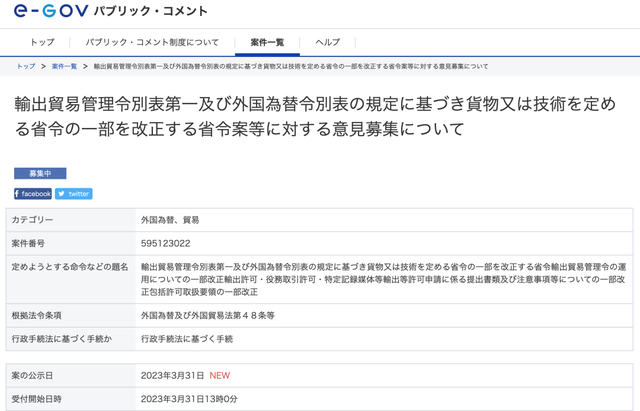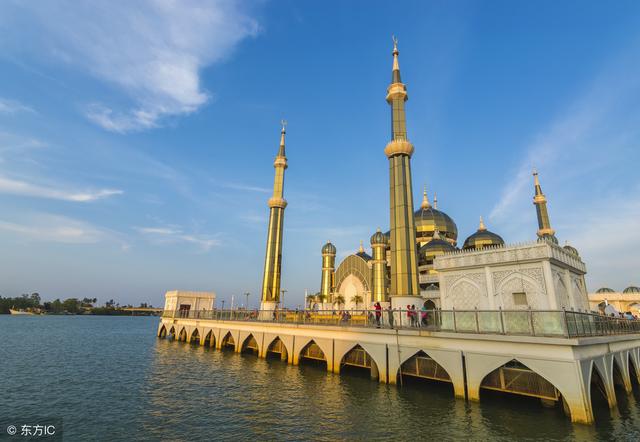越南网友:中国是否担心越南崛起?
越南人因为欧美进口商积极扩张在越南的市场而欣喜若狂,很多跨国企业从我国搬到越南和印度的缘故,大家都在议论越南和印度这两个国家对中国相关产业链的威胁。
可制造业的全球化转移并没那么可怕,可怕的是我国的制造业仅仅满足于当下的发展水平,千方百计去留住外资企业的生产线,而不是想方设法地发展自己的核心技术和品牌。在美版知乎Quora上,越南网友提问道:中国是否应该担心越南的崛起?这个问题引起各国网友的围观和热议,我们来看看他们的观点。

问题:中国是否担心越南的崛起?

越南网友吴宣志的回答
China is not just a country. It is the superpower that has ruled the world for the longest time in the history of civilization. Although Vietnam may have the opportunity to become a developed and advanced country, just like Japan now, it is limited by its land area, which is already its upper limit.
中国不仅仅是一个国家,它是整个世界文明史统治时间最长的超级大国,虽然越南也许有机会成为一个发达和先进的国家,就像现在的日本一样,但受限于国土面积,这已经是他的上限了。
Vietnam and China share the same political structure, so it can easily learn from China's development experience. Vietnamese people are deeply influenced by Chinese culture. They believe that hard work can bring prosperity. They are willing to study and work hard like Chinese people and hope to become rich in the near future.
越南与中国有着相同的政治结构,因此可以毫不费力地学习中国的发展经验。越南人深受中国文化的影响,他们相信努力工作可以带来繁荣,他们愿意像中国人一样学习和努力工作,希望在不久的将来,有可能会变得富有。

Under the policy of the government of Vietnam (VCP), Vietnam's economic development gradually depends on China. At present, about 90% of Vietnam's manufacturing industry depends on Chinese suppliers of manufacturing raw materials.
在越南政府的政策下,越南的经济发展逐渐依赖中国,目前约90%的越南制造业依赖中国的制造原材料供应商。
Vietnam's reform started late. Although it started as early as 1986, it was still an empty talk until 1995. In the mid-1990s, the United States lifted economic sanctions and Vietnam joined ASEAN before it began to carry out real economic reform and carry out corresponding investment and international trade. Substantive economic growth began in the mid-2000. In China, economic reform has been fully implemented since the 1980s. Since then, Shenzhen and other special economic zones are transforming into "world factories".
越南的改革起步较晚。尽管早在1986年就已开始,但直到1995年,它仍是一纸空谈。20世纪90年代中期,美国解除经济制裁,越南加入东盟后,才开始进行真正的经济改革,并进行相应的投资和国际贸易,实质性的经济增长始于2000年中期。而在中国,经济改革从20世纪80年代就已开始全面实施,那时起,深圳和其他经济特区正在转型成为“世界工厂”。
The destruction caused by many wars. Vietnam has experienced more than 40 years of destructive Wars - World War II, the war against France, the Vietnam War, the war with Khmer . The resulting infrastructure damage and mental trauma will take decades to recover.
多次战争造成的破坏。越南经历了40多年的破坏性战争——第二次世界大战、对法战争、越南战争、与柬埔寨的纷争,由此造成的基础设施破坏和精神创伤需要数十年才能恢复。

Investment and proprietary technology of overseas Chinese. When China opened to the outside world, investment and technology from Taiwan, Hong Kong and overseas Chinese poured in. Taiwan, Hong Kong and Singapore are all highly developed regions. They are ready to contribute to China's reconstruction. Hong Kong alone has unparalleled superb commercial, financial, legal and technical expertise. Hong Kong's huge financial market provides a steady stream of funds for emerging industries in the mainland. Vietnam has no such advantage.
海外华侨华人的投资和专有技术。当中国对外开放时,来自台湾地区、香港特区和海外华人的投资和技术蜂拥而至。台湾地区、香港地区和新加坡都是经济高度发达的地区,他们随时准备为中国大陆的建设作出贡献。仅香港地区就拥有无与伦比的高超商业、金融、法律和技术专长,香港巨大的金融市场为内地的新兴产业提供了源源不断的资金,越南就没有这样的好处。
Relatively backward industrialization. Before the 1980s, some parts of China had achieved a high degree of industrialization (such as Shanghai, Guangzhou and Northeast China). When China implemented the socialist market economy, the foundation already existed, while Vietnam's industry had not yet taken shape.
相对落后的工业化。20世纪80年代之前,中国部分地区已经实现了高度工业化(如上海、广州、东北)。当中国实施社会主义市场经济时,基础已经存在,而越南的工业还未成形。

Higher education is backward. Before the war, Vietnam did not have a world-famous university like Tsinghua University or Peking University. Vietnam's education system has not yet reached the standards of Chinese schools. Vietnam is far behind in science and technology education.
高等教育落后。战前,越南没有像清华大学或北京大学这样举世闻名的大学,越南的教育体系尚未达到中国学校所达到的标准,在科技教育方面,越南更是远远落后。
Economic scale. China has the largest potential market in the world. Although Vietnam still has a population of 100million, it is unmatched in scale.
经济规模。中国拥有世界上最大的潜在市场。越南虽然仍有一亿人口,但在规模上却无法匹敌。
Corruption seriously affects the business environment and the interests of the people. Vietnamese government officials are clearly very corrupt. In many cases, investors are scared away by stories of disgruntled officials sabotaging their businesses.
腐败严重影响营商环境和人民利益。越南政府官员显然非常腐败。许多情况下,投资者总会被不满的官员破坏其业务的故事吓跑。
Lack of investors. Every country in the world is competing to do business with China. In contrast, Vietnam still lacks a large amount of foreign investment. Funds from South Korea, Japan and Singapore are currently investing in Vietnam, but the Philippines and other ASEAN countries are also competing for the same funds. Western Europe and China (including Hong Kong) are not interested in Vietnam at all.
投资者缺乏。世界上每个国家都在争相与中国做生意。相比之下,越南仍然缺乏大量的外国投资。韩国、日本和新加坡的资金目前正在越南投资,但菲律宾等其他东盟国家也在争夺同样的资金。西欧和中国(包括香港特区)对越南根本不感兴趣。
International image. China has the world's largest market and the image of "world factory". Vietnam's image is war-torn and unfriendly to investors (for example, the story of Vietnamese workers attacking factory owners due to wage conflicts is still reported from time to time). By comparison, China will not care about Vietnam, let alone regard it as a competitor.
国际形象。中国有着世界最大的市场和“世界工厂”的形象,越南的形象是饱受战争蹂躏,对投资者不友好(例如,越南工人因工资冲突袭击工厂主的故事仍不时有报道),比较之下,中国不会在意越南,更不会把它当作竞争对手。

澳大利亚学者约翰•费恩的回答
You must understand that, compared with China, the power of the two is completely heaven and earth.
你必须明白,与中国相比,二者的力量是完全天上和地下。
1. China fully possesses and independently develops the trinity of nuclear strike capability and anti missile capability, while Vietnam is deeply dependent on the protection of the former Soviet Union and Russia.
1、三位一体的核打击能力及反导能力,中国完全具备且自主研发,越南则深度依赖原苏联和俄罗斯的庇佑。
2. The scale of the Chinese army is much larger than that of Vietnam. Vietnam is like a little mouse trying to fight a huge lion. It is difficult to understand why Vietnam provoked China and provoked disputes 40 years ago.
2、中国军队的规模比越南多得多,越南就像一只小老鼠试图与一头巨大的雄狮搏斗,难以理解四十年前越南为什么要招惹中国,挑起争端。

3. China's technological advantages are superior to Vietnam. China's military high-tech, such as supersonic weapons and avionics, is generally considered to be one of the most effective technologies.
3、中国的技术优势优于越南。中国的军事高科技,比如超音速武器、航电设备等通常被认为是最有效的技术之一。
The Chinese ground forces also have more professionally trained heavy troops, heavy battlefield vehicles, tanks to armored vehicles, and real arms to teeth. With three aircraft carriers and type 055 destroyers, Their morale is high and their tactics are excellent.
中国地面部队还拥有更多受过专业训练的重型部队,重型战场车辆,坦克到装甲车,真正的武装到牙齿。他们士气高昂,战术卓越。
Although Vietnam cannot compare with China in any military details, Vietnam has a good intelligence structure, excellent engineers, and increasing domestic military equipment. The most important thing is the Vietnamese spirit from the battlefield.
虽然越南在任何军事细节上都无法与中国相比,但越南拥有良好的情报结构,拥有优秀的工兵,国内军事装备也在不断增加,最重要的来自战场上的越南精神也是不可小觑的。
In terms of economy, the following are the prerequisites for Vietnam to get rid of the middle-income trap and gain a position comparable to China:
下面再说经济方面,越南要摆脱中等收入陷阱并获得与中国比肩的地位,以下是先决条件:
Education: Education in Vietnam is in crisis. Although its primary and secondary school enrolment rates are good, there are serious concerns about the quality of teaching. Vietnam's universities are dying, and can't even compare with the humble universities in Southeast Asia.
教育:越南的教育正处于危机之中。虽然其小学和中学入学率都很好,但人们对教学质量存在严重担忧。越南的大学奄奄一息,甚至无法与东南亚不起眼的大学相比。

The academic record of Vietnamese research institutions is as bad as the quality of their university education. In 2017, Vietnamese researchers published 76 articles in international journals. In contrast, Singapore, a small country with a population 20 times smaller than Vietnam, published 1100 articles in the same period. In 2017, Fudan University in Shanghai, a Chinese University, published 504 articles, almost seven times that of Vietnam!
越南研究机构的学术记录和其大学教育质量一样糟糕。2017年,越南研究人员在国际期刊上发表了76篇文章。相比之下,人口比越南少20倍的小国新加坡在同一时期发表了1100篇文章。2017年,中国一所大学,上海复旦大学,发表了504篇文章,几乎是越南的七倍!
Infrastructure and urbanization: in Vietnam, traffic congestion is very frequent, and infrastructure investment is usually wasteful and full of corruption. This leads to inefficient and costly services. According to the world bank, exporters need to pay US $701 to ship a 20 foot container from Vietnam, while China and Singapore only need to pay US $335 and US $382 respectively.
基础设施和城市化:在越南,交通堵塞非常频繁,基础设施投资通常是浪费的,而且充满腐败。这导致服务效率低下,成本高昂。根据世界银行的数据,出口商从越南装运一个20英尺集装箱需要支付701美元,而中国和新加坡分别只需要支付335美元和382美元。

Vietnam's urbanization is facing considerable challenges. In some urban areas, Vietnam's land price is equivalent to that of Japan. Japan is a crowded island, and its per capita income is 20 times that of Vietnam, which means that many Vietnamese will not be able to own or even rent decent housing. Poorly planned urbanization is a potential source of social and political instability.
越南的城市化面临着相当大的挑战。在一些城市地区,越南的地价与日本相当,日本是一个拥挤的岛屿,人均收入是越南的20倍,这意味着许多越南人将无法拥有住房,甚至无法租用像样的住房。规划不当的城市化是社会和政治不稳定的潜在根源。
People need decent housing, clean environment, high-quality medical care and family education services. All these are beyond the reach of most ordinary Vietnamese. In addition, due to the huge profits from land speculation, most of Vietnam's resources are being transferred from areas with higher productivity. When you can double or triple your capital in a few years by investing in real estate, why build a factory and wait 10 years to recover your investment?
人们需要体面的住房、清洁的环境、优质的医疗保健和家庭教育服务。所有这些都是大多数普通越南人难以企及的。此外,由于土地投机带来的巨大利润,越南的大部分资源正在从生产力更高的地区转移。当你可以通过投资房地产在几年内将资本翻倍或三倍时,为什么还要建一家工厂,等待10年才能收回投资?
Enterprise competitiveness: there is a basic contradiction in Vietnam's economic policy. Although the private sector and the foreign investment sector are the most dynamic, the state sector always receives the largest share of credit, investment and other privileges. In the 1990s, the government began to follow the model of the Japanese Economic Community (keiretsus) and the South Korean Chaebol, merging state-owned enterprises into large enterprise groups.
企业竞争力:越南经济政策存在一个基本矛盾。尽管私营部门和外商投资部门最具活力,但国有部门总能获得最大份额的信贷、投资和其他特权。20世纪90年代,政府开始效仿日本经济共同体(keiretsus)和韩国财阀的模式,将越南国有企业合并为大型企业集团。
However, these enterprise groups do not have the international competitiveness in their core businesses and compete in foreign markets as expected by the government. Instead, they use the government's loose credit to seek rapid returns in real estate and financial speculation. In many countries, practically all countries, they are unable to participate in market competition, and some are only in deficits of billions of dollars.
然而,这些企业集团并没有像政府预期的那样在其核心业务中具有国际竞争力,并在外国市场上竞争,而是利用政府宽松的信贷,在房地产和金融投机中寻求快速回报,他们在许多国家,实际上所有国家,都无法参与市场上的竞争,有的只是高达数十亿美元的赤字。
Vinashin (shipbuilding), vinalines (maritime transport) and Vinacomin (coal and mining) are some notorious examples. Let's look at some key industries. Vietnam's highly protected steel industry has deployed hundreds of micro steel plants to produce low-quality steel at high cost. Similarly, the cement industry uses old and environmentally harmful technologies in factories with insufficient scale. The productivity of the paper industry is less than one fifth of that of Japan. The chemical industry has a huge loss on some key investments (fertilizer, bioethanol fuel, synthetic fiber).
Vinashin(造船)、Vinalines(海上运输)、Vinacomin(煤炭和采矿)就是一些著名的例子。让我们看看一些关键行业。越南受到高度保护的钢铁行业部署了数百家微型钢厂,以高成本生产低质量钢材。同样,水泥行业在规模不足的工厂中使用旧的、不利于环境的技术,造纸工业的生产率不到日本的五分之一,化工行业在一些关键投资(化肥、生物乙醇燃料、合成纤维)上亏损巨大。
The policy environment determines a country's international competitiveness to a great extent. According to the Heritage Foundation's 2018 global economic freedom report, Vietnam ranks 141st in the 2020 index, and its score lags behind all regional economies, including Myanmar (135th), Cambodia (101st) and Laos (138th)! Vietnam is always at the bottom of the global economic freedom rankings.
政策环境在很大程度上决定了一个国家的国际竞争力。根据传统基金会2018年全球经济自由报告,越南在2020年指数中排名第141位,其得分落后于所有区域经济体,包括缅甸(第135位)、柬埔寨(第101位)和老挝(第138位)!越南在全球经济自由度排名中总是垫底。
Today, Vietnam's most competitive areas - bulk commodities such as coffee, rubber and rice, and labor-intensive products such as clothing and shoes are typically characterized by extremely low profit margins and low added value. These are also income inelastic goods, which means that when income increases, people will not buy in large quantities. Vietnam is now very competitive in industries with slow growth and low returns. The challenge is how to access high growth, knowledge intensive and high value-added products and services.
如今,越南最具竞争力的领域——咖啡、橡胶、大米等大宗商品以及服装和鞋子等劳动密集型产品的典型特征是利润率极低,附加值低。这些也是收入无弹性的商品,这意味着当收入增加时,人们不会大量地购买。越南现在在缓慢增长、低回报的行业中非常有竞争力。面临的挑战是如何进入高增长、知识密集和高附加值的产品和服务。

Financial system: inflation has become a worrying problem. With oil revenues, foreign loans, official development assistance, foreign direct investment inflows and overseas remittances driving huge capital inflows, domestic expenditure has increased rapidly, and the actual supply can not keep up. People prefer to make quick profits through land speculation rather than investing in commodity production, remember?
金融体系:通货膨胀已成为一个令人担忧的问题。随着石油收入、外国借贷、官方发展援助、外国直接投资流入和海外汇款推动了巨额资本流入,国内支出迅速增加,实际供应跟不上,人们更喜欢通过土地投机而不是投资商品生产来快速获利,记得吗?
Another area of concern is the reliance on very high levels of investment to sustain growth. Many things classified as investment are actually consumption in disguise. Corruption and waste in public investment projects and state-owned enterprises have shifted capital from investment to personal consumption. Poorly planned public projects generate low returns. If these projects are to be self liquidating, they must stimulate production and exports. Otherwise, they could drag down future growth. Vietnam's problem is that it needs a very high level of investment, which will lead to huge corruption and waste in order to maintain moderate growth.
另一个令人担忧的领域是依赖极高水平的投资来维持增长。许多被归类为投资的东西实际上是变相的消费,公共投资项目和国有企业中的腐败和浪费将资本从投资转向个人消费。规划不当的公共项目产生的回报率低。这些项目若要实现自我清算,就必须刺激生产和出口。否则,它们可能会拖累未来的增长。越南的问题是需要极高的投资水平,这会导致巨大的腐败和浪费,以维持适度的增长。
National administrative efficiency and capacity: East Asian countries (Japan, South Korea, China) have long-term strategic vision and political will to predict and respond to development challenges. However, time and time again, Viet Nam has failed to respond adequately to the problems recognized many years ago. For example, decades ago, urban planners foresaw the traffic jams that could paralyze Hanoi and Ho Chi Minh City, but so far, little has been done.
国家行政效率和能力:东亚国家(日本、韩国、中国)拥有预测和应对发展挑战的长期战略愿景和政治意愿。然而,越南一次又一次未能对多年前就已认识到的问题作出充分反应。例如,几十年前,城市规划师就预见到了可能导致河内和胡志明市瘫痪的交通堵塞,但迄今为止,几乎没有采取任何行动。
Many years ago, Hanoi and Ho Chi Minh City were hit by large-scale floods in the rainy season. However, people's response measures are still very ineffective. Many cities in developing countries have successfully solved these problems, and Vietnam can learn from them. But this is not the case. This raises a question: if the Vietnamese government cannot effectively respond to foreseeable challenges, how will it respond to unforeseen crises?
多年前,河内和胡志明市曾在雨季遭受大面积洪水的袭击,然而,人们的应对措施仍然非常无效。发展中国家的许多城市已经成功地解决了这些问题,越南可以从中学习。但事实并非如此。这就引出了一个问题:如果越南无法有效应对可预见的挑战,它将如何应对不可预见的危机?
In the latest governance research of the world bank, countries assess according to six criteria: accountability, political stability, government effectiveness, regulatory quality, rule of law and corruption. Except for political stability, Vietnam scores lower than all East and Southeast Asian countries.
在世界银行最新的治理研究中,各国按照6个标准进行评估:问责制、政治稳定、政府效能、监管质量、法治和腐败,除政治稳定外,越南的得分低于所有东亚和东南亚国家。
Yes, Vietnam is facing great challenges. Improving education and health care, solving the infrastructure crisis, meeting the challenges of urbanization and environmental degradation, reforming the financial system and improving the efficiency of the government all require better leadership than the corrupt and incompetent idiots in Hanoi. Now, I want to ask you, Can a powerful military Vietnam threaten China? Should China feel fear about rise of Vietnam?
是的,越南正面临巨大的挑战。改善教育和医疗、解决基础设施危机、应对城市化和环境退化的挑战、改革金融体系、提高政府效率,都需要比我们目前在河内的一群腐败无能的白痴更好的领导。现在,我想问问你,中国是否应该担心越南的崛起?






















评论